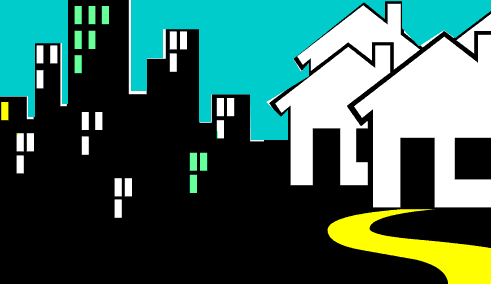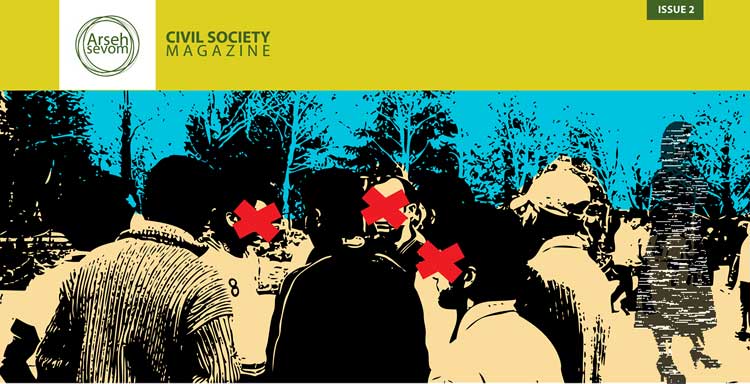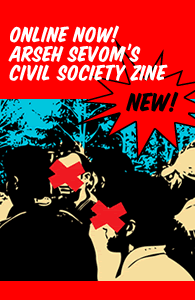
How to Organize a Community
November 22, 2011
From Monitoring to Building: Questions for South African Peace-Worker Jasmin Nordien
November 22, 2011by Amal Hamidallah-van Hees
Dear friend, you who came from so far; this long way, just to remember your beloved one – your country, your culture, your world, and nation with its diversity and richness. The longing and love you have for your world and culture inspires many. The link to the land, to its nation and community is similar to the link that Arabs have with their identity and community. As a proud Arab Muslim woman, I feel the same way as you. Struggling for dignity, recognition, but also missing my world – a lost world!
…
I. Failure and disappointment
We had the chance to build the first democracy in the Islamic world, but we failed and failed badly. Mass murders took place; members of left-wing groups, which included many female leaders, lost their lives. We were watching with our eyes wide open, surprised at the scale of violations. Yet there was no condemnation from the Arab world. At that time the Arab streets were weak, and we had no social media – not even the internet – and yet the terrible news was reaching the outside world. The Arab world was quite shocked as dreams turned into nightmares. All our dreams died with the Islamic revolution. This situation became worse as the Islamic revolution started its expansionist endeavours, impeding all the efforts of both Iranians and Arabs to build networks and work for the best of their societies whether in the field of democratic change, women’s rights or society strengthening. Until now, both regions have been very sceptical about network-forming that involves both societies. Activists in the Arab world who seek to bridge or bond with their Persian counterparts are perceived as ‘Iranian proxies’ or ‘Western agents’. To Iran, all that is coming from the outside is viewed as a ‘foreign conspiracy’ aimed at destroying Iranian identity…
Women at the frontlines
…When we compare post-revolution Iran to what is going on presently in the Arab world, we note that the position of women is very similar to that of Iranian women in 1979. They stand at the frontlines of the movement, requesting change, equality, and justice in the Arab world, yet their demands are met with answers much similar to what their Persian sisters heard decades ago:
“Now is not the time for women’s rights, etc… Once there’s democracy, there will be democracy for everyone”
Yet history has taught us that women are too patient. Our rights never materialise or become a priority. We only get broken promises with nations destroyed and divided as never before. What has happened to Iranian women will forever remain engraved in our collective memories! Like an ugly scar marring the beauty of innocent faces longing for brighter days. Just like our faces, our societies which were just recovering from dominations soon became disfigured and unrecognisable for many of us, especially our grandparents. We will never forget!!! We were with you in 1979, and your history is part of our collective memory!
Women are Good for Revolution, but Revolution is not Good for Women
…The uprisings sweeping the Arab world have toppled not only the status quo but also the old stereotypes of Arab women as passive, voiceless victims, and civil society as pointless, pictured as a bad caricature of a toothpick trying to defeat a tank. It hurts when you are confronted with such cheap statements and believe me I have been confronted with such statements on several occasions.
Consequently the world is surprised; and this reaction is similar to their surprise at the Iranian uprising in 1979, which was mainly dominated by the involvement of youth and women.
Over the past few months, the world has seen women and youth marching in Tunisia, shouting slogans in Bahrain and Yemen, braving the eruption of tear gas in Egypt, and blogging and strategizing in cyberspace. In Libya and Tunisia, female lawyers were among the earliest anti-Gaddafi and Ben Ali organizers in the revolutionary movement. Arabs were also surprised that the Western media was shocked! Indeed they were shocked to find women protesting alongside men. However, there is another bitter reality: women are good for revolutions, but historically, revolutions have never been so good for women, and the situation in the Arab and Islamic world is no exception. We saw it during the Iranian revolution in 1979; we saw it in Iraq and in Palestinian occupied territories, and it is the irony of our history. In Iran, women came out in force to march against the Shah in 1979; Ayatollah Khomeini rewarded them by curbing their rights and requiring that they wear the veil in government offices.
Women are left alone to fight
We are watching a similar scenario taking place presently with our eyes wide open; as Tunisians and Egyptians hammer out the nature of their nations’ future. Women are being required to fight for their rights for the second time this year as they are excluded from the post-revolution movement and ongoing negotiations targeting upcoming elections, power sharing, etc. Women are not even part of the constitutional committee in Egypt, which was tasked with coming up with constitutional amendments after the fall of Hosni Mubarak (the committee did not include a single woman).
When Tunisian women’s groups held a post-revolution rally to demand equality, hooligans disrupted the gathering, yelling: “Women at home, in the kitchen!” On March 8, a march in Cairo to commemorate International Women’s Day ended in violence when bands of men inspected protesters and asked the women present to return home; and the bands were trying to scare women out of public space. Who is responsible for this? No one can tell you for sure, but all will confirm that they are neither democratic nor women-friendly elements!
In the Islamic and Arab world, women’s rights have become a key symbol for a political game: when you try to promote women’s freedom to study, work, and travel freely, you have automatically aligned yourself with liberal (Western) forces; jeopardising the whole process of women’s emancipation and empowerment from within. On the other hand, when you curtail women’s freedom by promoting restrictive and selective interpretations of Sharia laws (knowing that many practices have no link with religion but are rather cultural practices) you instantly placate conservatives – It is as simple as that! There is no middle or friendly way for women. Women are left alone to fight their cause. They are incapable of seeking support from the outside world and also incapable of playing political games internally.
What will be the trend in the coming decade? Especially with the winds of anger sweeping the Arab streets: will women be extra-victimised and targeted by all belligerents? Or are we going to succeed in regaining the place we were meant to occupy? With full membership of our societies, serving as pillars of our communities, the guardians of equity, justice, equality, and peace? I can tell you this affirmatively – YES we can and we have no choice!! It is up to you, to us to assert ourselves!!!
II. The surprise and hope
The Arab anger may have taken the region’s leaders and the world by surprise, but not those of us who were on the inside watching events unfold. We knew and warned about such an outburst. Women linked to emancipation movements both from the inside and outside were aware of the way things were changing. We learned how to let things evolve from inside without jeopardising our causes. Moudawanah (Morrocan family law) and other changes brought to family laws in Islamic countries were translated into Persian and Persian texts into Arabic. The work of Emad Baghi on the death penalty in Islam was translated from Persian into Arabic, etc.
Personally, I was involved in this process, and I can tell you there were challenging times at different levels. But we have learned a lot, and our solidarity, the feeling of common shared values and the dream of a better future kept us going.
The difference between past and present experiences is that now, women in the Islamic and Arab world have learned a lot from past failures. We are increasingly educated, organized and networked. As Muslim women, we are using sources such as the Koran and international human-rights laws. We have begun to question the prevailing political, social, and religious status within our societies. We have learned from our past failures.
Claiming our space
We are Muslims, we are Persians or Arabs, we are Turkmen or even Pashtu … No matter our ethnical affiliation or background, one thing is certain – no one has the monopoly regarding the truth, especially when it comes to the interpretation of the holy texts. We will claim our space, even the religious one. Enough harm has been done in the name of religion, and our religion is innocent of such deeds committed in its name. Women were leaders, even judges from the time of the prophet (pbuh). Human rights and women’s rights are enshrined in our core values and Islamic faith. Please let me tell you one truth, probably my truth, and it says a lot about me! I must confess, it may surprise many among you:
There is no incompatibility between modernisation and Islam, both can go hand in hand, so please do not fear religion and do not fear to engage with religious leaders to foster positive social change and human rights dialogue, even if religion will be the frame.
Challenging intolerance
Yes Arab and Muslim women, we started challenging intolerance and injustice at home and at the mosque, we learned from past experiences (mainly the Iranian experience), and we are better equipped to go out and protest injustice. So we should not be afraid of political Islam.To be honest with you, I am sure political Islam will be part of the future political landscape in our region. I am not defeatist but realistic. We should build alliances to advance our cause, alliances among us as a movement of women with Islamic roots. Stigmatising, shaming, blaming, or even rejecting our faith will not aid change from within. You cannot insult or shame the faith of nearly one-third of the world’s population and ask them to embrace your cause: this will only lead to another unnecessary holy war. We are fed-up with such wars that have brought nothing good to our nations except stagnation and disintegration. No matter the rationale behind shaming and blaming, even if it can be justified, our communities; conservative by nature will be on the defensive, in defense of their faith, which is the only element they have kept throughout their history. There is a better way, and in this way our communities might be better stimulated to embrace change and accept positive changes. If we succeed to win their hearts, their minds will follow, paving the way for positive behaviors as well.
We need to work from within. Islam is our cement and the strongest binding factor. Islam is part of our identity, whether we are Kurdish, Arab, Turkmen, Hazara, Balushi, Sunni, Shiaa, Sufi, liberal secular leftists, practicing or non-practicing. We are all aware that change is needed, and we cannot deny that part of our identity. Furthermore, the world cannot deny us our identity; change will happen from within, including all the aspects of who we are, and we are the ones to accept the change and make it compatible with our core values and identity.
Our path is dignity, we have no choice
May we please conclude with these encouraging words because our path is still long and we are at the very beginning. We walked a long way since we split ages ago; since the first schism that impacted us forever. But those are historical facts and truths that we cannot change. Let history be history, and let the future be a common project where we can find each other for the benefit of us and human kind – bringing wealth, equity, equality, justice, and democracy to our societies. We are one! No matter our diversities. Only unified can we make a difference! We have no choice. We have to continue our path, the path of dignified life; with love, respect and dedication. I am ending by dedicating the beautiful words of Mawlana Jallalu Din Rumi to you all. It is a poem for a dear friend, a beloved one. Let us dream of our friendship, cohesion, peaceful and coherent society; let us dream of our beloved land and community with Mawlana Mawlana Jallalu Din Rumi:
My dear friend
never lose hope
when the Beloved
sends you away.
If you’re abandoned
if you’re left hopeless
tomorrow for sure
you’ll be called again.
If the door is shut
right in your face
keep waiting with patience
don’t leave right away.
Seeing your patience
your love will soon
summon you with grace
raise you like a champion.
And if all the roads
end up in dead ends
you’ll be shown the secret paths
no one will comprehend.
The beloved I know
will give with no qualms
to a puny ant
the kingdom of Solomon.
My heart has journeyed
many times around the world
but has never found
and will never find
such a Beloved again.
ah I better keep silence
I know this endless love
will surely arrive
for you and you and you.
Poem translated by Nader Khalili
…… ….. …




